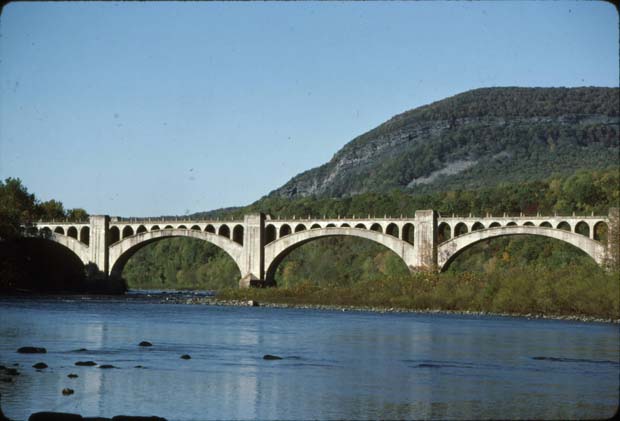MATAMORAS, PA.
By Jessica Cohen
[dropcap]I[/dropcap]f governments managed the Delaware River like an industry, they would note that the economic value of water and forests dwarfs the value of natural gas drilling in the Upper Delaware River Basin, according to Jerry Kauffman, Water Resources Agency project director at the University of Delaware.
“In its pristine quality, Kauffman said, the upper Delaware River Basin above the Delaware Water Gap is worth nearly $8 billion per year for renewable resources, including drinking water at $2.8 billion; value of forests, $4.2 billion; and river recreation, $940 million.”
“Drilling for Marcellus shale gas, a nonrenewable resource, would endanger those renewable resources and would be worth only $400 million,” Kauffman said.
“Don’t drill in the watershed. Drink the water,” he said.
Kauffman recently completed a study with Andrew Homsey, associate policy scientist at the University of Delaware Institute for Public Administration. He presented the results at the “Natural Economies” conference organized in May by Common Waters, a partnership of public and nonprofit conservation organizations, at the Riverview Inn in Matamoras, Pa.
Conservation’s cash value
Kauffman illustrated numerous ways that conservation is profitable, even in cities. A park, for example, increases the value of nearby real estate, the way New
York’s Central Park magnified the value of the real estate surrounding it.
Similarly, he noted how the Delaware River landscape increases nearby land value in numerous ways, from the aesthetic appeal it has for artists to the money people spend at local businesses when they fish or just sightsee.
“People may pay $44 for a canoe rental and $150 on the trip,” he said.
“American shad provide food for bald eagles and cougars,” Kauffman said. “And people come from cities to watch them.”
He cited other ways to quantify the value of conservation.
“If you take out the forest, you need water treatment plants,” he said, since the forest provides a natural water filter.
“It costs two orders of magnitude less to plant trees than to build water filters,” he said.
To drill or not to drill
Kauffman noted that of 54,000 square miles of Marcellus shale, only 1.3 percent is in the Delaware River Basin in New York, and only 3.5 percent is in Pennsylvania’s segment of the basin.
Given the economic value of water and forests there, he said, targeting the area for disruptive gas extraction seems questionable.
“As a scientist, it’s hard for me to come out for or against gas drilling,” Kauffman said. He conceded he can see the monetary value in using shale gas as an energy source. He also said car emissions from vehicles powered by natural gas are lower. And as coal-fired plants are converted to gas, emissions are less and energy costs diminished.
But he said, “Nowhere is there a basin like the Delaware River Basin, providing drinking water to 5 percent of the U.S. population. I hope that’s considered in the policy debate about drilling in the basin. Now there’s a moratorium on drilling there. It can’t hurt to continue the moratorium until the science is better developed.”
Fragmented oversight
He also pointed to the “fragmentation” of pipeline regulation, as the Interstate Commerce Commission, the U.S. Department of Transportation, and the various state regulatory agencies all share regulatory responsibilities.
“Pipeline oversight should be centralized,” he said.
Even aside from the dangers of leaks and spills with pipeline work, he emphasized the importance of proper restoration of the 100-foot-wide swathes of forest cut for pipelines. Those cuts can interrupt migratory patterns and leave forested areas open to invasive species, he said. Likewise, digging in streams disturbs sediment and upsets fish habitats.
“There’s plenty of gas being extracted to the west,” Kauffman said. “Why rush? But in certain sectors they’re rushing.”


